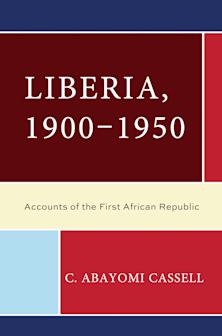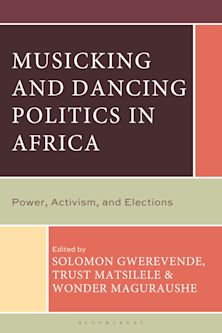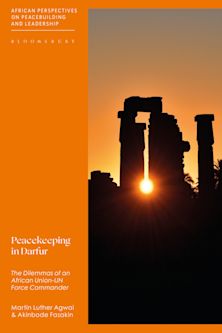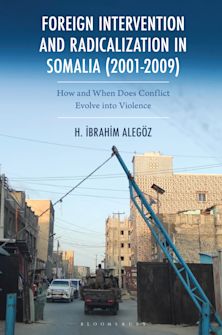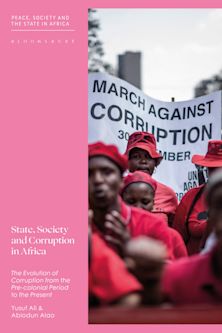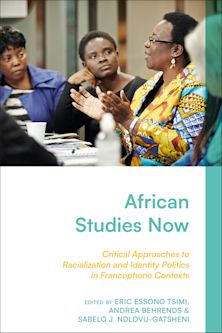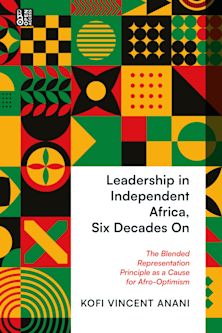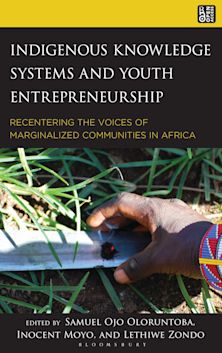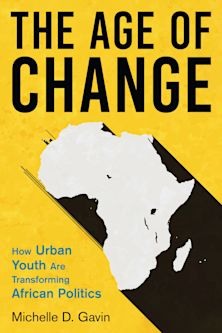- Home
- ACADEMIC
- Politics & International Relations
- African Politics
- Class Formations and Inequality Structures in Contemporary African Migration
Class Formations and Inequality Structures in Contemporary African Migration
Evidence from Ghana
Class Formations and Inequality Structures in Contemporary African Migration
Evidence from Ghana
You must sign in to add this item to your wishlist. Please sign in or create an account
Description
This book examines the influences of social class and inequality structures on migration in Africa using information from Ghana. As the country achieves moderate to significant economic gains driven (in part) by the country’s diaspora communities, the desire to migrate has intensified. Migration is now synonymous with social mobility and self-improvement. It has been found that existing class and status inequalities are analytically inseparable from the social and cultural processes underpinning the motivations behind Ghanaian migration. Migrant class and socioeconomic attributes are closely intertwined, reinforcing and operating at every level of the migration decision-making to influence the motivation to migrate, the type and form of migration, the direction of the migration, its timing, and ultimately the outcomes and expectations that migrants associate with their decision to migrate.
From a historical and contemporary perspective, this book argues that power and class-based structural relationships are significant components in understanding how migratory diasporas shape and are shaped in turn by social class and inequality. The social class identities that Ghanaian immigrants manifest in the United States are often based on immigrant formulations and importation of class dynamics from the home country. These identities are then transformed in the countries of destination and replayed or relived back home, thereby creating multiple class identities that are powerful forces in inducing social changes. In essence, migrant social class attributes formed before and post-migration is significant because it holds the possibilities of transforming the social structures of migrant-sending countries. As migrants return home and seek reintegration into the body polity of the home society, conflicts emanating from changes in their class dynamics may hinder or promote sociocultural and economic development. Hence, the imperative of the central government is to understand and incorporate into national development planning the social class characteristics of its citizens who are leaving, as well as those who are returning.
Table of Contents
Chapter 2: The Layers of Social Class Formations and Class Consciousness in Ghana
Chapter 3: Class Inequalities in Internal and Regional Migration in Ghana
Chapter 4: Class Profiles of Ghanaian Immigrants: A Socio-Historical Perspective
Chapter 5: Economic Conditions of the Ghanaian Immigrant Underclass: A Culture of Resilience
Chapter 6: The New Black Immigrant Elites: A Sociological Portrait of the Immigrant Doctors, Allied Healthcare Professionals, and Academic Class
Chapter 7: Conclusion: Influences of Class and Inequality Structures on African Diasporas and Homeland Development
Product details
| Published | Oct 15 2014 |
|---|---|
| Format | Ebook (Epub & Mobi) |
| Edition | 1st |
| Extent | 296 |
| ISBN | 9781498503846 |
| Imprint | Lexington Books |
| Series | African Migration and Diaspora Series |
| Publisher | Bloomsbury Publishing |
About the contributors
Reviews
-
"Most works on economic and social dimensions of migration addressing the issue of class and inequality among migrants do so mostly with respect to the destination areas of migrants. In this book, the author argues that class and inequality dominate every facet of African life, consequently shaping contemporary migration in the region. Though migration has been a tool for lessening inequality in Ghana, it is characterized by inequalities too. These are not often manifested in the chronicles of African migration, but Arthur’s book fills this gap with content extended to historical perspectives and sociological dimensions of the subject.
This book is a must-read for both academics who seek to provide research evidence for migration policy and policy makers (national and international) attempting to manage migration in the region. Both will not hesitate to acknowledge how class dynamics are played at both the origin and destination and indeed in the entire migration process as illustrated with the Ghanaian (internal and international) experience that is not different from those of other African countries. It is the best basis for understanding contemporary migration in Ghana/Africa and managing it.”Delali M. Badasu, University of Ghana
-
An illuminating account on migration and the shaping of class identities in Ghana and the Ghanaian diaspora. The book is insightful and timely as it contributes to our body of knowledge about migration and social stratification in contemporary Africa and beyond. In this book, Arthur maintains that the class composition and formations in contemporary Africa provide the impetus for migration, a process that would continue into the foreseeable future if the inequalities that exist between social groupings in the region (class, marginalized minorities, among others) are not addressed.
Class Formations and Inequality Structures in Contemporary African Migration is a welcome addition to sociological studies on contemporary African immigrants and their pathways into mainstream societies in their host nations. This is a book that will be of interest to a wide range of scholars form a variety of disciplines: Africanists and non-Africanists alike.Baffour K. Takyi, University of Akron
-
Highly readable analysis of how class impacts the processes of African migration to the United States and in turn, contemporary African and American societies. Writing in accessible language, Arthur underscores some key questions on the important theme of twentieth and twenty first century African global migration. Focusing primarily on Ghana and Ghanaian immigrants, the book explores how inequality and class status differentiate immigrant experiences and economic and political change in a transnational context. It raises some key questions about the meanings of pan-Africanism, diaspora, belonging, inequality, and mobility in the contemporary world.
Rachel Jean-Baptiste, University of Chicago













